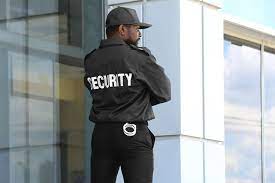
What Powers Do Security Guards Have?
What Powers Do Security Guards Have?
Security guards do not operate under police jurisdiction and solely possess jurisdiction over the property they’ve been hired to safeguard. As such, they can ask you to leave, use reasonable force against unruly individuals, and make citizen’s arrests if they witness an actual offense occurring on that premises.
Guards may also search people and their belongings, taking extra caution not to cause legal trouble for both themselves and the company.
1. Detain
Security guards can often be misunderstood as law enforcement, leading to confusion about their legal authority and limits. Security guards have the right to detain anyone breaking in or damaging premises they are hired to guard, perform citizen’s arrests and restrain criminals until police arrive if necessary.
Private security guards must only use reasonable force or restraint, including not searching people’s belongings without consent, which could potentially land them in legal hot water. Furthermore, security guards should call the police if they observe criminal behavior or suspect someone may need medical assistance immediately and must also comply with local laws when physically removing anyone from their premises.
2. Search
Security guards often work for various private clients such as banks, retail malls and office buildings but should not be considered law enforcement officials. Even when armed, their legal authority is limited only by contracts agreed upon with their clientele.
Security guards can only search bags or wallets with prior consent from those being searched, while forcing anyone else to be searched is forbidden. Exceptions could occur in instances such as witnessing crimes being committed or having contracted with their client and secured permission to conduct searches beforehand.
Security guards typically carry first aid equipment with them on patrol to assist in medical emergencies or injuries that arise while on duty, and some also possess radios for communicating with their fellow guards and the police department.
3. Arrest
Security guards who wish to make arrests must undergo extensive training courses to be eligible. This ensures they are well-informed of their responsibilities and powers, but must remain mindful of not using excessive force or exceeding their authority, or risk facing serious legal implications.
They have the authority and ability to eject you from a venue if they determine you are either intoxicated or acting inappropriately, and may use physical force against anyone violating venue rules and laws, like Liquor Act 1992.
When law enforcement suspects you of engaging in criminal activity, they have the right to search your belongings and request your ID so that they can verify who you are.
4. Interrogate
Security guards often handle confidential information in their work. They must take care not to reveal this sensitive data to unauthorised individuals and adhere to data protection laws.
Security guards may also be called upon to interview individuals to reduce security risks and deter crime, something which requires extensive training for security guards in order to evaluate situations accurately and question people without infringing upon anyone’s rights.
Private security guards have the authority to make citizen arrests if they have reasonable suspicion that an individual has committed a crime in their presence, but must immediately turn over those arrested over to law enforcement as otherwise they risk being sued for unlawful arrests. It’s essential for security companies to train their guards so they understand their limits of authority.
5. Deter Crime
Security guards possess an invaluable tool in their arsenal against crime: reporting suspicious activity to law enforcement and fire services, so that they may respond quickly and appropriately to potential threats.
Security guards not only report suspicious activity but can also patrol property and use their communication security guard in melbourne skills to deter potential criminals – this serves as an excellent deterrent in places like hospitals, events and retail establishments.
Security guards may physically remove individuals from private property, such as asking a shoplifter to leave. However, it’s essential that they comply with their employer’s policies and exercise situational awareness; any unnecessary use of force could have serious repercussions for both them and their employer.


